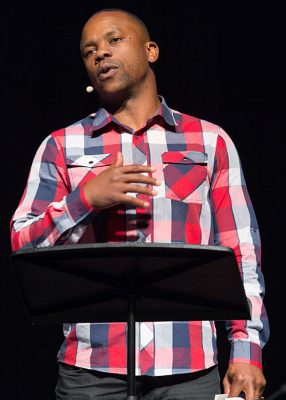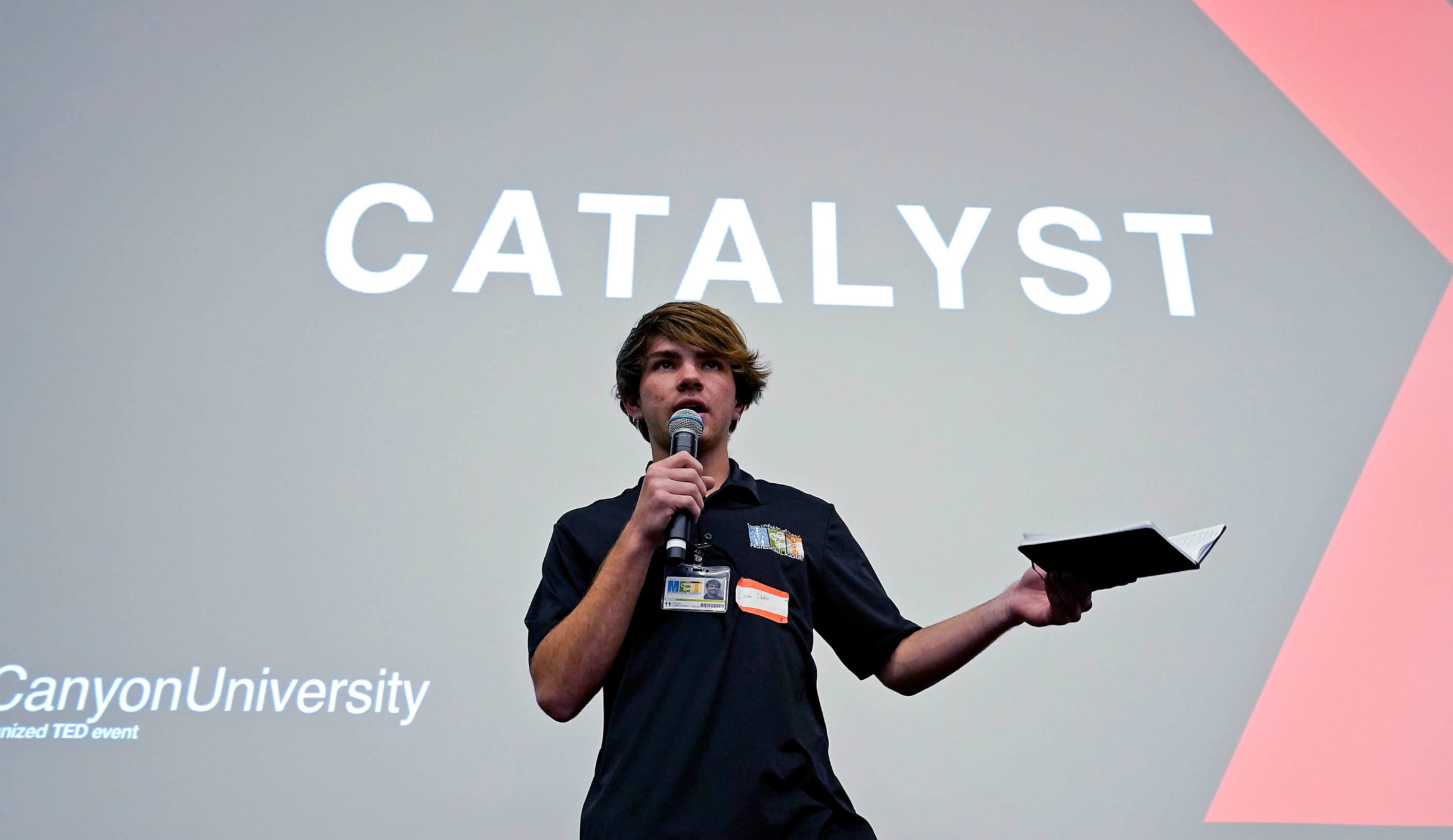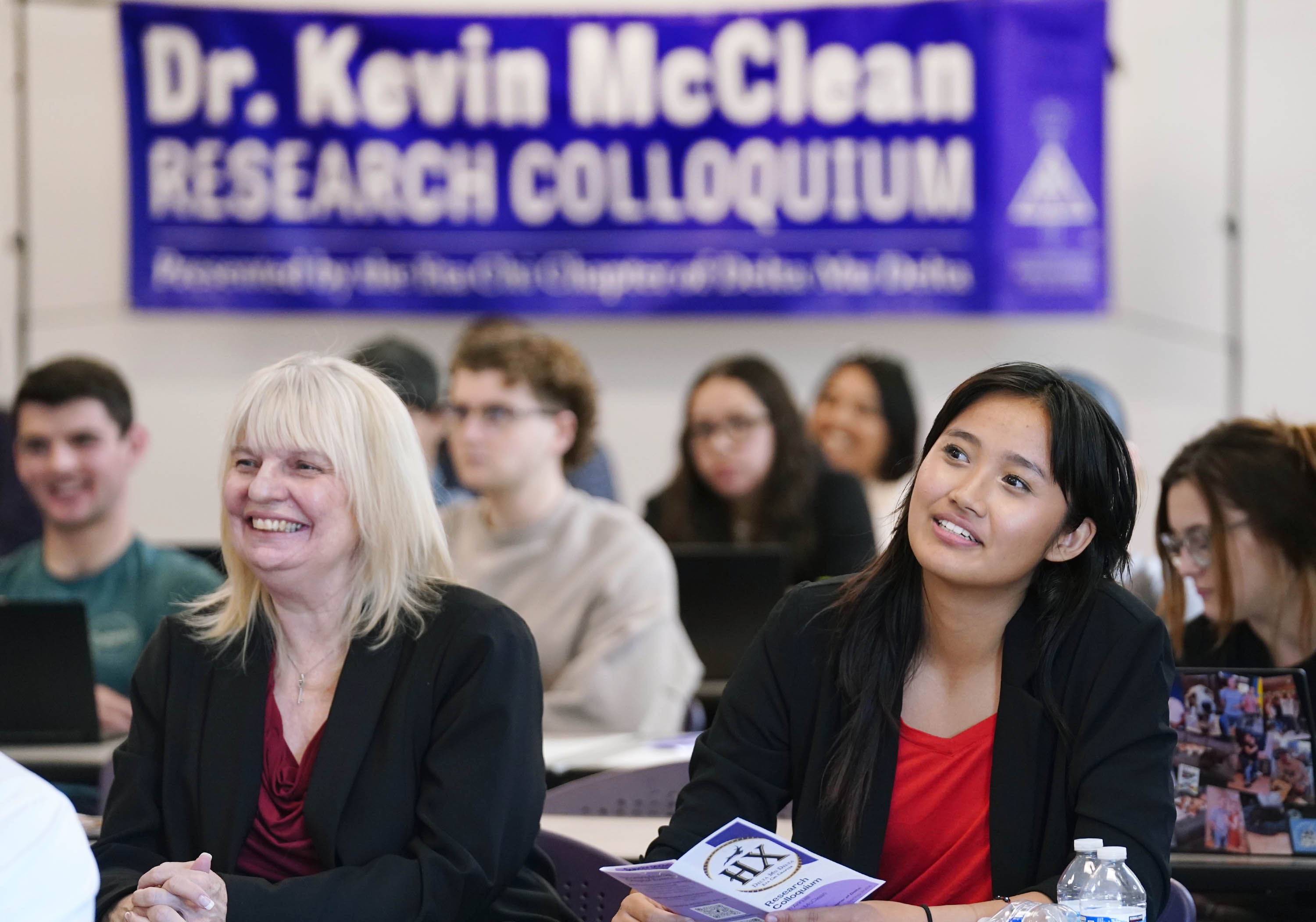By Rick Vacek
GCU News Bureau
Riccardo Stewart’s quick-witted speaking style forces you to pay attention. You don’t want to miss the one-liners he casually lobs into the conversation.
It's worth it because Stewart has important things to say. Monday morning, in his second visit to Chapel at Grand Canyon University Arena, the pastor of Redemption Church in Tempe wanted to talk about the things that divide people these days and what that means, especially for Christians.

“How do multiple types of people — racially, ethnically, politically, etc. — how do they become one and how do they live in oneness?” he began.
He told the story of growing up in a Los Angeles suburb and being surprised when a girl he was dating told him that his group of friends was so diverse.
He didn’t know what she meant; it was all he had known. But as time went on, it came into focus for him. Just listen to him describe the scene on his wedding day:
“My best man was half white and half Mexican. The next guy sitting next to him, he was Hindu. Then there was Brandon, who was Indonesian. Then there was David, who was Nigerian. And then there was a guy, White Ryan, whom we called White Ryan because he was white, and then my cousin and my brother.
“It was just one of those things where, for me, that was just always the nature. These were all the guys that I grew up with. These were people who I was friends with since I was 8 years old that were just my boys.”
Stewart became a Christian after attending Arizona State University, where he played football, and he said he found it interesting that there were churches for different ethnic groups. That, too, ran counter to what he had known. He couldn’t accept the idea that God wants to keep us segregated.
The New Testament, he said, is not just about theology and doctrine “that we can learn and regurgitate to sound like we know what we’re talking about.”
“Really, those doctrines were in place to do something bigger,” he added. “Throughout the heart of the New Testament, what we see is, how is the Gospel, the good news of Jesus, able to unite Jews and Gentiles? How are they to be one?”
He pointed to Chapter 2 of Ephesians, where Paul tells his followers that they had been saved by God’s grace, not their good works. Our relationships go a long way toward showing how well we live by that message, and those relationships often are with people who are different from you.
“It’s easier when the people are like you,” Stewart said. “It’s easier when the people think like you, like the things you like, they vote like you, they live in the same community as you.
“But when you have an eclectic group of people together, there causes some dying to yourself in order to enter into somebody else’s story. And it actually causes some dying to the other to enter into your story. You begin to see that that is actually at the heartbeat of the Gospel.”
That heartbeat was Jesus going into a poor community and suffering so that everyone may gain. Not just one group. Everyone.
“But now in Christ Jesus,” Paul wrote to the Ephesians, “you who once were far away have been brought near by the blood of Christ. For He Himself is our peace, who has made the two groups one and has destroyed the barrier, the dividing wall of hostility, by setting aside in His flesh the law with its commands and regulations. His purpose was to create in Himself one new humanity out of the two, thus making peace, and in one body to reconcile both of them to God through the cross, by which He put to death their hostility.”
What Jesus had done and Paul was passing along was, in essence, a celebration of diversity.
“Here me on this: The way in which people from different sides of the track, whether racially, ethnically, politically, socially, socio-economically, when they worship together, it shows something different,” Stewart said. “And I think Paul got this.”
He got it when he worked with the diverse group of people in Antioch, which is where the term “Christians” was created. From that point on, his mission was to bring Jews and Gentiles together.
“It was never something of saying, ‘Let’s just get along.’ He always took it back to the main thing — that the peace that it could only come from was by looking and honestly committing your lives to the grace of God that has been extended to you,” Stewart said.
“And when you have received that grace, you’ve lived it in ways that you ultimately picked up your cross and you walked across what used to be a wall and you enter into somebody else’s life. And then you allow them to pick up a cross and walk along the wall and live in such a way that they can ultimately grow and enter into your life.
“As a people when we do that, I actually think the world around us begins to see what the Gospel looks like.”
● For a replay of Stewart’s talk, click here.
● There will be no Chapel next Monday, March 20, because of spring break.
Contact Rick Vacek at (602) 639-8203 or [email protected].























































